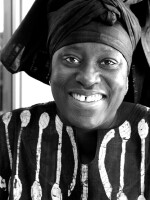An eminent group of world leaders, including former President Jimmy Carter, has warned that the humanitarian situation in Zimbabwe is much worse than they thought.
Zimbabwean authorities barred the group from entering the country this weekend. The so-called "Elders," a group of peacemakers that was formed by former South African President Nelson Mandela, instead remained in South Africa, where they've been listening to accounts of the suffering across the border.
The delegation, which also included former U.N. chief Kofi Annan and Mandela's wife, Graca Machel, briefed South Africa's top leaders on the situation in Zimbabwe. South African President Kgalema Motlanthe told the news media that the outlook was bleak.
"The Elders painted a rather depressing picture," Motlanthe said. "So unless this root cause — the absence of a legitimate government — is solved, this situation will get worse and may implode and collapse altogether."
Carter, Annan and Machel were supposed to travel to Zimbabwe on Saturday to gauge for themselves the level of suffering there, but Zimbabwean President Robert Mugabe's government would not cooperate, so they spent the past few days talking with Zimbabwean and other regional civic and humanitarian leaders in South Africa.
At a news conference Monday in Johannesburg, Carter said they were shocked by what they heard.
"The crisis in Zimbabwe is much greater, much worse than anything that we had ever imagined," he said. "And, obviously, the absence of a functioning government is the main problem that we face."
Carter detailed the collapse of public health care, education, social services, crop cultivation and virtually all other structures — as well as an outbreak of cholera. Rights activist Machel said this was a clear indication Zimbabwe's government was not listening.
"Either the leadership doesn't have a clear picture of how deep is the suffering of their own people, or they don't care," she said. "Because anyone sensible — with that scale and depth of suffering — would do, with no delay, everything possible to stop deaths, to stop suffering and to protect people."
Chronic food and fuel shortages, soaring hyperinflation and widespread unemployment have prompted millions of Zimbabweans to flee into South Africa and other neighboring countries. The crisis has been exacerbated by a power struggle between President Mugabe and his main political rival, Morgan Tsvangirai. Despite a power sharing agreement in September, Mugabe has refused to relinquish control of several powerful ministries.
In their comments Monday, the Elders avoided placing blame, but there was some criticism leveled at the regional trade bloc, the Southern African Development Community. Annan said leaders of the organization, known as SADC, could have played a more decisive role.
"I think it's obvious that SADC could have and, perhaps, should have done more," Annan said. "I think SADC has the capacity. What it needs is the determined political will to get it done."
Machel was less diplomatic. She pointed to South Africa's recent decision to withhold $28 million in food aid. She said more regional governments should follow South Africa's lead and suspend aid funds to Zimbabwe until a national unity government was installed.
"SADC should be assertive — a radical change for the sake of the people of Zimbabwe," she said.
Zimbabwe's rival political leaders are scheduled to meet in South Africa on Tuesday in the latest bid to rescue September's decidedly shaky power-sharing deal.
Copyright 2022 NPR. To see more, visit https://www.npr.org. 9(MDAzMjM2NDYzMDEyMzc1Njk5NjAxNzY3OQ001))







